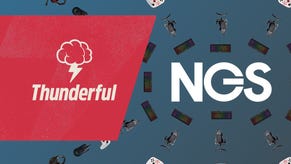Most compulsive gamers are "not addicts"
Gaming treatment centre founder believes that most kids' problems stem from society
The founder and manager of the Smith & Jones Centre in Amsterdam - a treatment centre set up in 2006 which offers help to people addicted to videogames - has said that 90 per cent of the people he sees are not addicts, but instead the victim of social problems that could be helped better by a stronger involvement from parents and teachers.
Keith Bakker told the BBC that while 10 per cent of his patients also show addictive tendencies to other substances, such as alcohol and drugs, he believes that the rest cannot be labelled as addicts.
"These kids come in showing some kind of symptoms that are similar to other addictions and chemical dependencies," he said. "But the more we work with these kids the less I believe we can call this addiction. What many of these kids need is their parents and their school teachers - this is a social problem.
"This gaming problem is a result of the society we live in today. Eighty per cent of the young people we see have been bullied at school and feel isolated. Many of the symptoms they have can be solved by going back to good old-fashioned communication.
"In most cases of compulsive gaming, it is not addiction and in that case, the solution lies elsewhere."
Bakker pointed out that while 87 per cent of online gamers are over the age of 18, the "the root cause of the huge growth in excessive gaming lies with parents who have failed in their duty of care."
He also revealed that research carried out by the Centre concludes that aggressive behaviour often linked to the playing of violent videogames is something that is usually present in people beforehand.






.jpg?width=291&height=164&fit=crop&quality=80&format=jpg&auto=webp)

